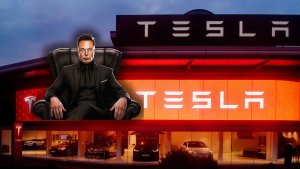As the “Technoking” of Tesla strategizes to maintain his control over the company’s decision-making, anyone concerned with the role that Tesla will play in the evolving EV transition should be asking how CEO Musk might use, or abuse, his powerful position.
In this paper, we assess the implications of Elon Musk’s strategic control over Tesla, the pioneering company that has become central to the electric vehicle transition. We document how, as Tesla’s CEO for 16 years, Musk has exercised strategic control to direct the transformation of the company from an uncertain startup to a global leader. Now that Tesla is profitable corporate predators (aka hedge-fund activists) may challenge Musk’s strategic control—a possibility of which the CEO is well aware. To retain his control over Tesla as a publicly listed company, Musk depends on holding a sufficient proportion of Tesla’s shares outstanding to possess the voting power to fend off predatory value extractors. In addition to accumulating Tesla shares by investing $291.2 million at early stages of the company’s evolution, Musk has relied upon massive stock-option grants from the Tesla board, under the guise of “compensation”, in 2009, 2012, and 2018, to boost his shareholding and, with it, his voting power. Hence the Delaware Court of Chancery’s decision in January 2024 to rescind Musk’s 2018 stock-option package—by far the largest ever granted to a corporate executive—poses a threat to Musk’s strategic control at Tesla. As the “Technoking” of Tesla strategizes to maintain his control over the company’s decision-making, anyone concerned with the role that Tesla will play in the evolving EV transition should be asking how CEO Musk might use, or abuse, his powerful position.



